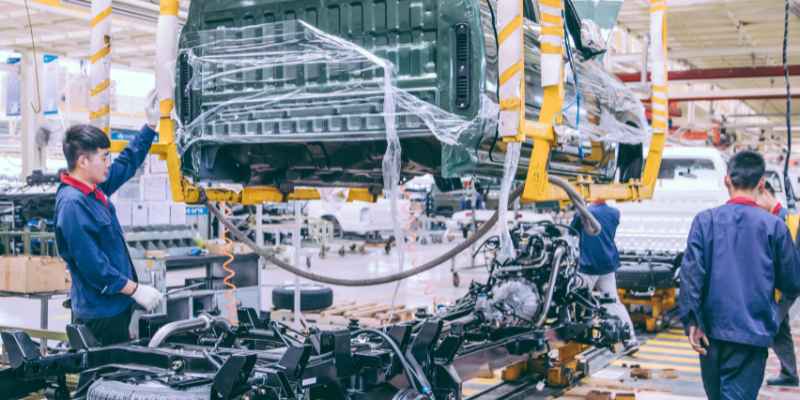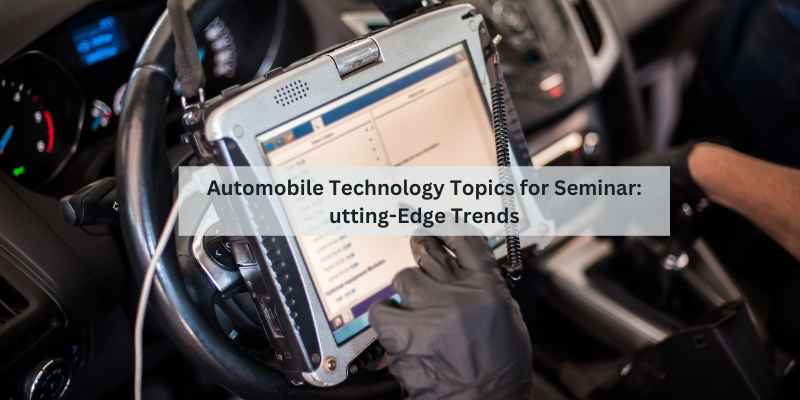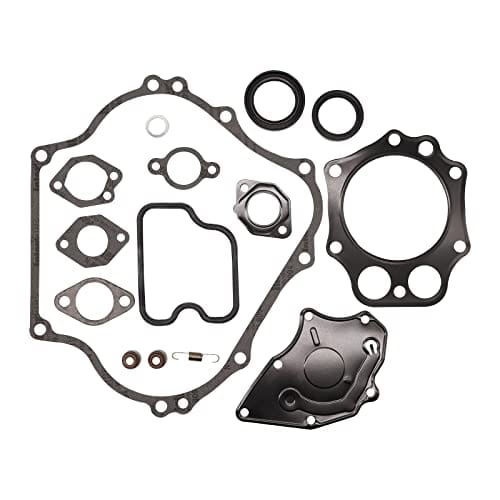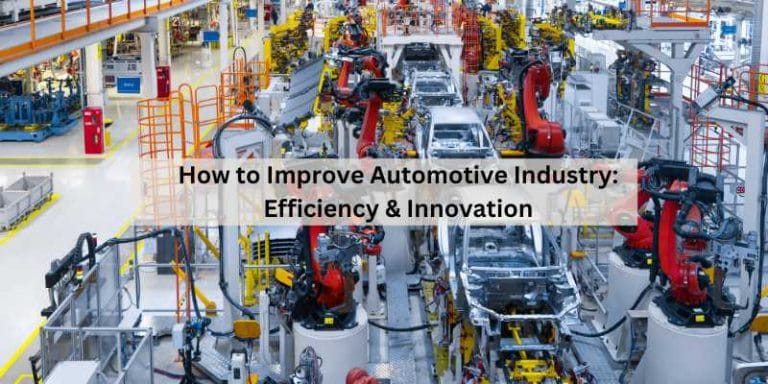Automobile Technology Topics for Seminar: Cutting-Edge Trends
For a seminar on automobile technology, consider topics like autonomous vehicles, electrification, and advanced driver assistance systems. These areas showcase the latest advancements and trends in automotive engineering, making them ideal for a comprehensive and engaging presentation.
The world of automobile technology is constantly evolving, with innovations such as artificial intelligence, big data, and autonomous vehicles reshaping the industry. As automotive engineering continues to push boundaries, it’s crucial to stay updated on the latest trends and developments.
In this seminar, we will explore key topics such as the future of automotive technology, advancements in energy-efficient vehicles, and the integration of cutting-edge technologies in modern automobiles. By delving into these areas, we aim to provide valuable insights into the dynamic and rapidly changing landscape of automotive technology.
The Electric Revolution
The automotive industry is experiencing a significant shift towards electric vehicles (EVs) and innovative battery technologies. This electric revolution is reshaping the future of transportation and sustainability.
Electric Vehicles (evs) Surge
Electric vehicles (EVs) are gaining rapid popularity due to their environmentally-friendly nature and energy efficiency. The surge in EV adoption is driving advancements in electric motors and battery technologies.
Battery Innovations
Continuous research and development in battery innovations are enhancing the performance and range of electric vehicles. Cutting-edge technologies such as solid-state batteries are paving the way for longer driving distances and fast charging capabilities.
Autonomous Vehicles
Explore the future of automotive technology with engaging seminar topics on Autonomous Vehicles. Discover how self-driving cars are revolutionizing transportation and the innovative advancements shaping the automobile industry.
Self-driving Technology

Self-driving technology in autonomous vehicles utilizes sensors and algorithms for navigation.
Legislation And Safety
Legislation and safety protocols are crucial for ensuring the safe integration of autonomous vehicles on roads.
Connected Cars
Connected cars are revolutionizing the automotive industry, integrating advanced technologies to enhance the driving experience and safety. One of the key aspects of connected cars is the seamless integration of Internet of Things (IoT) and robust cybersecurity measures to protect sensitive data and ensure the reliability of vehicle systems.
Internet Of Things (iot) Integration
The integration of Internet of Things (IoT) in connected cars enables real-time data exchange between vehicles, infrastructure, and other devices. Through IoT, vehicles can communicate with each other and with smart infrastructure to improve traffic management, reduce congestion, and enhance overall safety on the roads. IoT integration also facilitates remote vehicle diagnostics, predictive maintenance, and personalized services for drivers.
Cybersecurity Measures
Ensuring robust cybersecurity measures is paramount in the era of connected cars. With the increasing connectivity and data exchange, vehicles are susceptible to cyber threats. Implementing strong encryption protocols, secure communication channels, and intrusion detection systems are essential to safeguard the vehicle’s systems and the privacy of users. Additionally, continuous monitoring and timely software updates are crucial to mitigate potential cybersecurity risks.
Alternative Fuels
As the world seeks sustainable and eco-friendly solutions for transportation, alternative fuels have emerged as a crucial area of focus in the automobile industry. The exploration of alternative fuels encompasses a range of innovative technologies that aim to reduce reliance on traditional fossil fuels and mitigate environmental impact. In this context, topics such as hydrogen fuel cells and the impact of biofuels play a pivotal role in shaping the future of automotive technology.
Hydrogen Fuel Cells
The development and utilization of hydrogen fuel cells represent a promising avenue for achieving cleaner and more efficient energy in the automotive sector. These fuel cells harness the chemical reaction between hydrogen and oxygen to generate electricity, with the only byproduct being water vapor. This technology holds immense potential to power vehicles while minimizing harmful emissions, thus contributing to a greener transportation landscape.
Biofuels Impact
Biofuels have garnered significant attention due to their potential to reduce carbon emissions and promote sustainability. Derived from organic materials such as agricultural crops, waste oils, or algae, biofuels offer an environmentally friendly alternative to conventional petroleum-based fuels. The impact of biofuels extends beyond mitigating greenhouse gas emissions, as their production and use also hold potential for enhancing energy security and promoting rural development.
Advanced Driver Assistance Systems (adas)
Advanced Driver Assistance Systems (ADAS) represent a significant leap forward in automotive safety and technology. These systems employ a combination of sensors, cameras, and radars to assist the driver in various ways, enhancing both safety and comfort.
Collision Avoidance
One of the key features of ADAS is the collision avoidance system, which uses sensors to monitor the vehicle’s surroundings and alerts the driver of potential collisions. In some advanced systems, it can even autonomously intervene by applying brakes or steering to prevent an imminent collision.
Adaptive Cruise Control
ADAS also includes adaptive cruise control, which maintains a set speed but can also adjust the vehicle’s speed to maintain a safe following distance from the vehicle ahead. This system enhances convenience and safety, particularly during long highway drives.
Vehicle-to-vehicle Communication
Vehicle-to-Vehicle Communication is a cutting-edge technology that enables vehicles to communicate with each other, paving the way for a safer and more efficient transportation system. This technology allows vehicles to exchange information such as speed, position, and direction, which can be utilized to enhance traffic efficiency and reduce the likelihood of road accidents.
Enhancing Traffic Efficiency
Vehicle-to-Vehicle Communication plays a vital role in enhancing traffic efficiency by enabling vehicles to share real-time traffic information. This allows drivers to make informed decisions, such as adjusting their speed or changing lanes, to avoid congestion and improve overall traffic flow.
Reducing Road Accidents
Vehicle-to-Vehicle Communication significantly contributes to reducing road accidents by providing vehicles with the ability to exchange critical safety data. This includes warnings about potential hazards, sudden braking, or lane changes, thus helping to prevent collisions and improve overall road safety.
Smart Manufacturing
Welcome to the exciting world of Smart Manufacturing in the automobile industry. This innovative approach leverages cutting-edge technologies to enhance efficiency and productivity in production processes.
3d Printing In Auto Production
3D printing has revolutionized the way auto parts are manufactured, allowing for rapid prototyping and customization.
Robotic Process Automation
Robotic Process Automation (RPA) is streamlining manufacturing tasks through the use of automated robots, improving precision and speed.
Sustainability In Automotive Design
In today’s rapidly evolving automotive industry, sustainability plays a crucial role in shaping the design and manufacturing processes of vehicles. With a focus on reducing environmental impact and promoting eco-friendly practices, sustainable automotive design is paving the way for a greener future.
Recyclable Materials Use
One key aspect of sustainable automotive design is the utilization of recyclable materials. By incorporating materials that can be easily recycled into vehicle components, manufacturers can reduce waste and minimize the environmental footprint of the automotive industry.
Lifecycle Assessments
Another important practice in sustainable automotive design is conducting lifecycle assessments. These assessments evaluate the environmental impact of a vehicle from production to disposal, helping manufacturers make informed decisions to improve sustainability throughout the vehicle’s lifecycle.

Frequently Asked Questions
Which Technology Is Used In Automobile Industry?
The automobile industry uses a range of technologies such as Artificial Intelligence, Big Data & Analytics, Human-Machine Interfaces (HMI), Internet of Things, Autonomous Vehicles, ADAS (Advanced Driver Assistance System), and Electrification. These technologies are constantly evolving, leading to the future of automotive technology being focused on self-driving cars, electric vehicles, and advanced safety features.
What Is The Recent Technology In Automobile Engineering?
Recent technology in automobile engineering includes Artificial Intelligence, Big Data & Analytics, Internet of Things, Autonomous Vehicles, and Electrification. These advancements are shaping the future of the automotive industry.
What Is The Future Of Automotive Technology?
The future of automotive technology includes AI, big data analytics, IoT, autonomous vehicles, electrification, and advanced driver assistance systems. These innovations aim to enhance performance, safety, and sustainability in the automotive industry.
What Are Car Topics?
Car topics refer to various subjects related to automobiles that can be discussed in seminars or presentations. These topics can range from the latest technology in automobile engineering, emerging vehicles, and energy innovations to driverless cars, the future of automotive technology, and the analysis of the automotive industry.
Conclusion
The automobile industry is continuously evolving, and there are numerous technology topics that can be explored in a seminar. From emerging vehicles to advanced driver assistance systems, there is no shortage of interesting topics to discuss. With the rapid advancements in technology, it is crucial to stay updated and informed on the latest developments.
By attending seminars and staying engaged with the industry, individuals can gain a competitive edge and contribute to the growth and innovation of the automobile industry.







